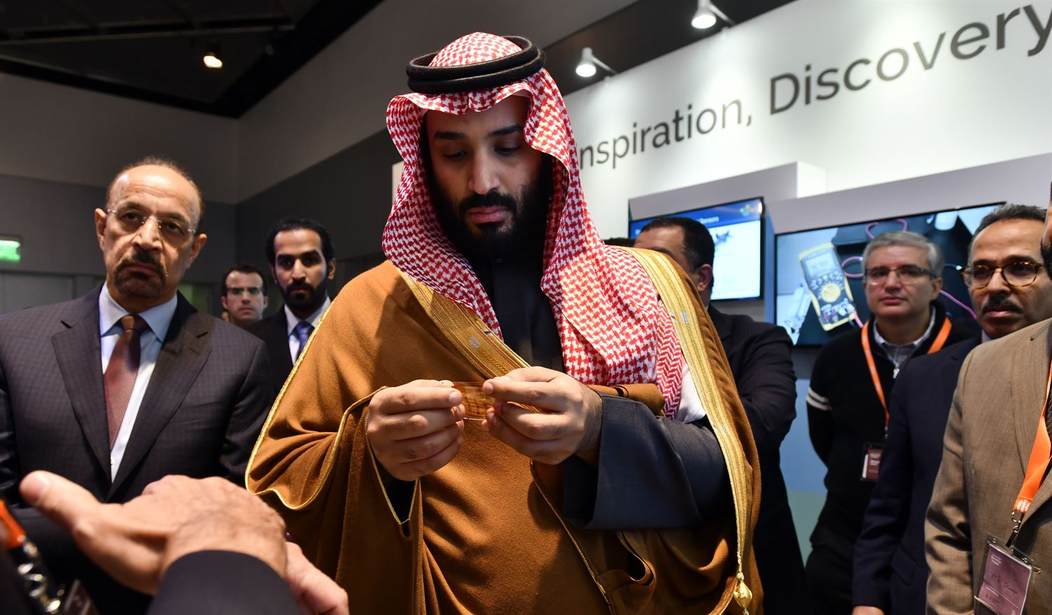In the aftermath of attacks on Saudi Arabian oil fields allegedly by or backed by the Iranian government, Saudi officials have a right to be offended by the violation of their country’s territory and the financial blow to their largest industry. If the evidence is conclusive that the Iranian government was somehow complicit in the attack, few would dispute that the Saudis have rights under international law to seek retribution and obligations to protect their territory and citizens from future attack.
What they should actually do, or if Saudi involvement in other areas of the Middle East like Yemen had anything to do with the oilfield attacks, are separate questions. But when determining the policy of the United States towards this situation, our leaders should take two considerations into serious account: the national security interests of the United States and the capabilities of the Saudi Arabian military to prevent or deter future attacks.
No U.S. persons or facilities were targeted in the attacks, which were actually the latest in a string of incidents between the Saudis and the Iranians as both countries fight proxy wars across the Middle East and seek greater hegemony in the region. And of course, the current conflict is part of a much longer and deeper running sectarian competition in the region colored by the Sunni-Shia religious split and the Arab-Persian cultural rivalry.
It has never been necessary nor advantageous for the United States to put ourselves in the middle of this conflict, the consequences of which can be seen in the sectarian violence that killed or injured thousands of U.S. service members following the defeat of Saddam Hussain in Iraq.
Some observers may point to Saudi oil imports as a security and economic interest to the United States, and there is indeed historical precedence going back to the earliest days of our nation for defending our trade interests. But such interests should be determined on a case by case basis.
Recommended
According to the U.S. Energy Information Administration, Saudi Arabia accounts for less than 10 percent of our petroleum imports, a number that doesn’t necessarily qualify as a dependency. To put it in context, the U.S. gets 43 percent of our petroleum imports from Canada, and we actually export more petroleum products to Mexico than we import from Saudi Arabia.
Saudi Arabia is a long-standing ally of the United States in the Middle East, but alliances should not be confused with interests. If anything, it is the role of Congress, the elected representatives of the American people, to determine when threats to our interests necessitate a declaration of war.
Further, the Saudis have the means and resources to defend their country and counter Iranian violence.
As of 2018, Saudi Arabia was the third-largest military spender in the world, outspending the likes of France, the UK, and Russia respectively. In 2017, the U.S. and Saudi Arabia signed an arms agreement worth more than $100 billion allowing the Saudis to purchase high-end military equipment including missile defense systems, precision air-to-ground munitions, combat ships, and sophisticated radar and communications platforms.
Iran, on the other hand, is the world’s 18th largest military spender. Their conventional military capabilities have also been hamstrung for decades by western sanctions, forcing them to rely on older and less sophisticated equipment. The Iranian Air Force still includes F-4 Phantom IIs, the Vietnam War – era fighter that was retired from U.S. combat service more than two decades ago and hasn’t even been used as target practice since 2016.
This shouldn’t minimize the proven ability of the Iranians to engage in lethal and effective forms of asymmetrical warfare in the region, especially as they have done over the past decades through their extensive network of proxy groups. They have the ability to shut down, at least temporarily, a key global trade bottle-neck at the Strait of Hormuz and foment sectarian violence in a half-dozen countries in the Middle East.
But if the Saudis have nearly 5 times the amount of military expenditures and access to the most technologically advanced military equipment in the world, why should the U.S. also need to intervene in this conflict on their behalf?
A better avenue, both for American economic interests in the region and the lives of our service members who would be called into a conflict, would be pressing both countries towards a diplomatic solution that could defuse or at least contain the current situation.
But if those fail to materialize in time, American leaders must consider what our true national security interests are and what consequence U.S. military action could have in the conflict – including the potential of getting ourselves bogged down in another Middle Eastern war. We should then let the Saudis fight their own war with the resources and equipment they lobbied so hard for.
--
Robert Moore is a public policy advisor for Defense Priorities. He previously worked on Capitol Hill for nearly a decade, most recently as lead staffer for Senator Mike Lee (R-UT) on the Senate Armed Services Committee.

























Join the conversation as a VIP Member